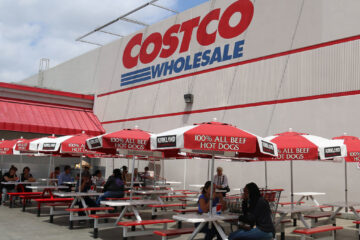The trade challenge against the United States’ cross-border neighbors by President Donald J. Trump has begun to cool after it seemed to reach its boiling point.
For weeks, he threatened Canadian and Mexican goods with 25% tariffs and an additional 10% tariff on goods originating from China. He justified the measures by centering the blame on the U.S. fentanyl trade on the named countries and blasted Canada and Mexico for cross-border issues like illegal immigration.
Breaking: 12 things to know about Trump’s new tariffs
However, just one day before the tariffs against its northern and southern neighbors were to take effect, their leaders got on the phone with President Trump. They came back with month-long tariff pauses and renewed commitments to deter migration and drugs.
But while both Canada and Mexico have committed to talks and negotiations with Trump administration officials during the interim period, the auto industry faces many risks if those talks fall apart. However, when it comes to these tariffs, Ford CEO Jim Farley sees another issue beyond just Canada and Mexico.
Ford Motor Company President and CEO Jim Farley raised concerns about Trump tariff policy during its Q4 2024 earnings call.
Bill Pugliano/Getty Images
Ford CEO: Trump’s tariffs “would have a huge impact on our industry.”
During Ford’s (F) Q4 2024 earnings call, CEO Jim Farley said that any imposed tariffs would significantly impact U.S. industries, including the Blue Oval.
“There is no question that tariffs at 25% level from Canada and Mexico, if they’re protracted, would have a huge impact on our industry with billions of dollars of industry profits wiped out and adverse effect on the U.S. jobs, as well as the entire value system in our industry,” Farley said. “Tariffs would also mean higher prices for customers.”
Farley’s concern comes as Ford revealed some optimistic numbers for Q4 and full-year 2024. Ford’s Q4 2024 net income rose to $1.8 billion, while adjusted EBIT doubled to $2.1 billion, and revenue rose to $84.2 billion in the quarter. Specifically, Ford’s core Ford Blue and Ford Pro commercial vehicle divisions made $1.6 billion in the fourth quarter, while Ford’s Model e EV division lost $1.4 billion.
For the full year, Ford saw net income climb 37% to $5.9 billion in 2024, while adjusted EBIT dipped 2% to $10.2 billion, and revenue climbed to $185 billion.
Sherry House, Ford’s vice president of finance and incoming CFO, identified potential tariffs as a “headwind” that could affect Ford’s performance in 2025. The automaker has an outsized manufacturing footprint and supply chain that spans North America. While it plans to build Super Duty pickup trucks in Canada, Ford currently makes a lot of cars and car parts in Mexico, including engines, the Mustang Mach-e EV, the Bronco Sport, and the Maverick pickup truck.
Related: This U.S. state has an unusual solution to slow speed demons
More Automotive:
Dodge confirms gas-powered Charger Sixpack coming this summerJeep parent makes executive overhaul as it searches for new CEOHonda faces a massive recall over dangerous software glitch
Farley had a plan if Trump negotiations fell through earlier this week.
In response to a question regarding an extended period of sustained tariffs from Goldman Sachs analyst Mark Delaney, Farley noted that the company would be in “good shape” where the month-long tariff delay didn’t pan out. Tariffs would be applied for “a number of weeks,” resting on their ability to make sure “nothing crosses the border” and that “80-plus percent of our vehicles” and “100% of our transmissions, more than half of our engines” are made in the States.
But while he rests on the laurels that his competitors are “a country mile away” from Ford’s U.S. supply chain footprint, he notes that a new strategy would have to emerge if potential tariffs against Mexico or Canada continue to be a problem.
“[…] our U.S. plants are busy. Like we do not have upside. We have some plans for Tennessee and Kentucky and some expansion plans for our new EVs,” Farley said. “But our teams in the U.S. are flat out already. So there’s not — I mean, we would have to make some major strategy shifts in the U.S., build new plants, etc., if this persists.”
Despite the risk, Farley remains a bit optimistic that the Trump administration will handle tariffs with automakers like Ford in mind in the future; going as far as to say that the administration “understands and appreciates how vital our industry is to jobs, the economy, our national security and the communities across our country.”
“[…] these dynamics will all play out for some time to come, but Ford controls its future,” Farley said. “While we are certainly operating in interesting times, at the end of the day, we control our destiny.”
Ford CEO thinks it isn’t on an equal playing field with Hyundai, Kia and Toyota
In an appearance on CNBC’s Closing Bell: Overtime before the earnings call on February 5, Jim Farley expressed that he and other American car companies seek to have a “comprehensive” tariff policy from the Trump administration “not just towards Mexico and Canada,” pointing out that there are much bigger fish to fry—specifically, its East Asian rivals.
“We understand all the pressures on the border and with drugs,” Farley said. “But the reality is, you know, Hyundai, Kia and Toyota can import millions of vehicles through South Korea and Japan without these tariffs. We need a comprehensive look at such a tariff change.”
Farley repeated his frustration while responding to Mark Delaney’s tariff question during the earnings call later that day.
“What doesn’t make sense to me is why are we having this conversation while Hyundai, Kia is importing 600,000 units into the U.S. with no incremental tariff. And why is Toyota able to import a half a million vehicles in the U.S. with no incremental tariffs. I mean, there are millions of vehicles coming into our country that are not being applied to these,” Farley said.
“So if we’re going to have a tariff policy that lasts for a month or whatever it’s going to be years, it better be comprehensive for our industry. We can’t just cherry-pick one place or the other because this is a bonanza for our import competitors.”
Related: Tariffs could make these popular cars more expensive
Farley’s frustration does not come from an unguided perspective. Prior to his tenure at Ford, he spent 20 years working for Toyota, a job that would define his automotive career.
“My family was not happy, they wouldn’t talk to me here in Detroit because they were ashamed that I worked [at Toyota],” Farley explained in an October 2024 episode of the Fully Charged Podcast. “It was a huge social cost in the midwest of the U.S. for the success of Toyota. So many jobs were lost, including many people in my family.”
“I can’t un-learn that as a young man. I can’t unlearn the fact that the Detroit Three never really had a plan [to tackle Japanese automakers].”
According to GlobalData data, Americans have quite the appetite for “foreign” cars regardless of brand. A whopping 46% of cars sold in the States in 2024 are foreign-made, and while nearly 17% of them were Mexican-made, South Korea and Japan rank second and third as the top vehicle importers, at 8.6% and 8.2%, respectively.
While Japanese auto imports are subject to 2.5% duties, there are no existing tariffs on cars imported from South Korea—which means that Hyundai can import any number of Ioniqs, Sonatas and Elantras from Ulsan without any penalties.
Related: Veteran fund manager issues dire S&P 500 warning for 2025


